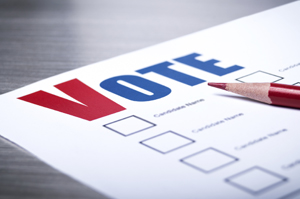South Bend Tribune
Indiana already leads the nation in the percentage of voters purged from the rolls.
A law that went into effect in July could ensure the Hoosier state maintains the distinction.
The measure, introduced as Senate Bill 442, eliminates a requirement for state officials to comply with safeguards when removing certain voters from the rolls.
Signed by Gov. Eric Holcomb in April, the law is the subject of a lawsuit filed Aug. 23 in federal court. The Indiana NAACP and the League of Women Voters say in the lawsuit that Indiana’s new way to cross-check names on voter rolls violates federal law and is discriminatory.
The “Interstate Voter Registration Crosscheck” system allows election officials to immediately remove voters identified as having registered to vote in another state.
The lawsuit contends that the cross-check process violates the National Voter Registration Act of 1993, also known as NVRA and the “Motor Voter Act. “
The act was established to protect voters from being removed from registration rolls improperly.
The lawsuit alleges that under the new system, individuals who are deleted from the rolls aren’t given notice.
For his part, state Sen. Greg Walker, one of the authors of SB 442, told the Indianapolis Star that the merits of the law were debated by the Senate Committee on Elections as well as the entire General Assembly.
He said he felt certain the law was “a reasonable and effective way to keep accurate voter roll information.”
The experience in Virginia says something otherwise.
The state relied on the Crosscheck system to purge almost 40,000 registered voters without notice prior to its 2013 election. Local election officials later found error rates that were as high as 17 percent, according to the Brennan Center for Justice, a public policy institute.
The Brennan Center filed the Indiana lawsuit on behalf of the NAACP and League of Women Voters. Officials with the center said that a 2016 analysis found that minorities are more likely to be flagged for removal by the Crosscheck process.
Any law that complicates or creates obstacles to your right to vote is neither “reasonable” nor “effective.”
And whatever the stated intentions of lawmakers who support such measures, it’s disenfranchisement.
Like restrictive voter ID laws, it’s a solution in search of a problem. Barbara Bolling-Williams, president of the Indiana State Conference of the NAACP, said, “No Hoosier should be silenced on Election Day.”
And that’s reason enough to speak out about an Indiana law that threatens to do just that.




